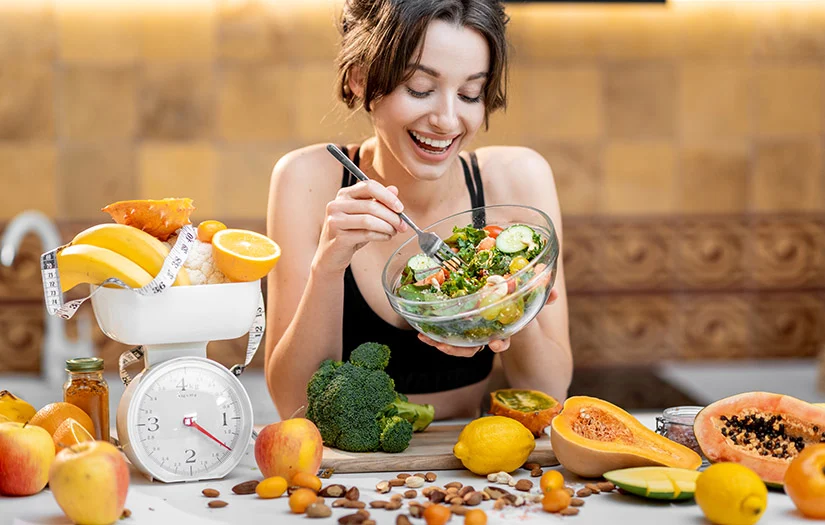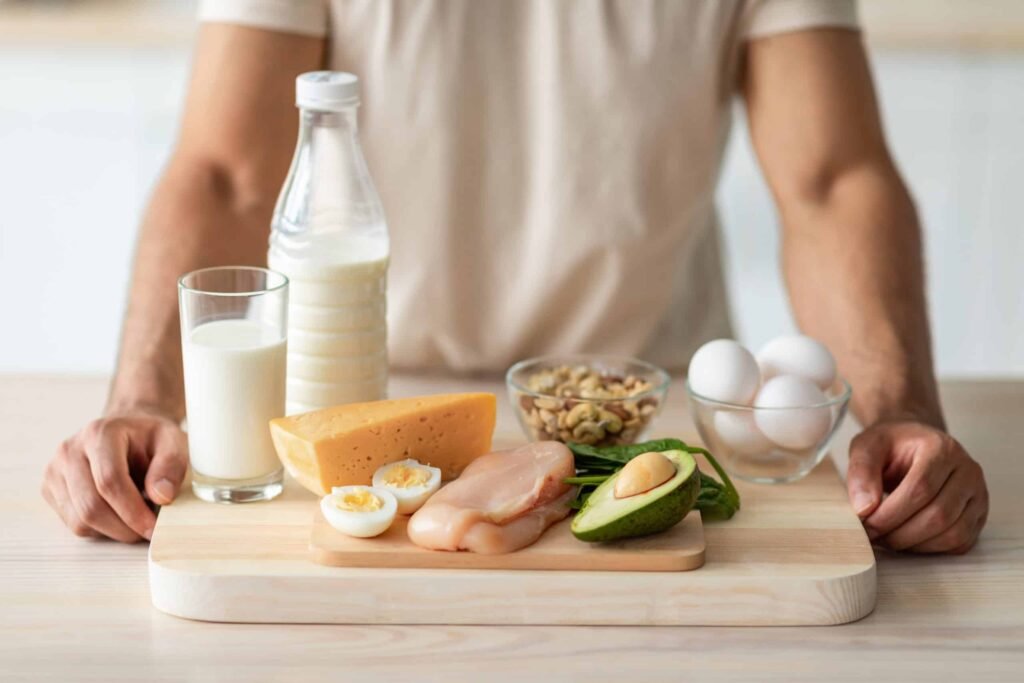Best Protein Foods to Gain Weight: A Comprehensive Guide for Wellness Warriors
As wellness enthusiasts, we often focus on weight loss, but for some individuals, gaining weight in a healthy way is equally important. Whether you’re an athlete looking to build muscle mass or someone who needs to increase their body weight for health reasons, consuming the right protein-rich foods is crucial. In this article, we’ll explore the best protein foods to help you gain weight in a healthy and sustainable manner.
Understanding the Importance of Protein for Weight Gain
Before diving into specific foods, it’s essential to understand why protein is so crucial for healthy weight gain.
Protein plays a vital role in:
1. Building and repairing muscle tissue
2. Supporting overall health and bodily functions
3. Providing essential amino acids that the body cannot produce on its own
4. Helping to increase muscle mass when combined with strength training
A high-protein diet, when paired with an appropriate calorie surplus, can be an effective strategy for gaining weight and building muscle. The recommended protein intake for weight gain is typically between 1.6 to 2.2 grams of protein per kilogram of body weight, depending on your activity level and specific goals.

Top Protein-Rich Foods for Healthy Weight Gain
1. Lean Meats
Lean meats are excellent sources of high-quality protein and essential nutrients. They provide a substantial amount of protein without excessive saturated fat content.
Some of the best options include:
✔ Chicken breast
✔ Turkey breast
✔ Lean cuts of beef (sirloin, tenderloin)
✔ Lean pork cuts
For example, a 6-ounce (170g) serving of chicken breast provides about 54 grams of protein, making it an excellent choice for those looking to increase their protein intake.
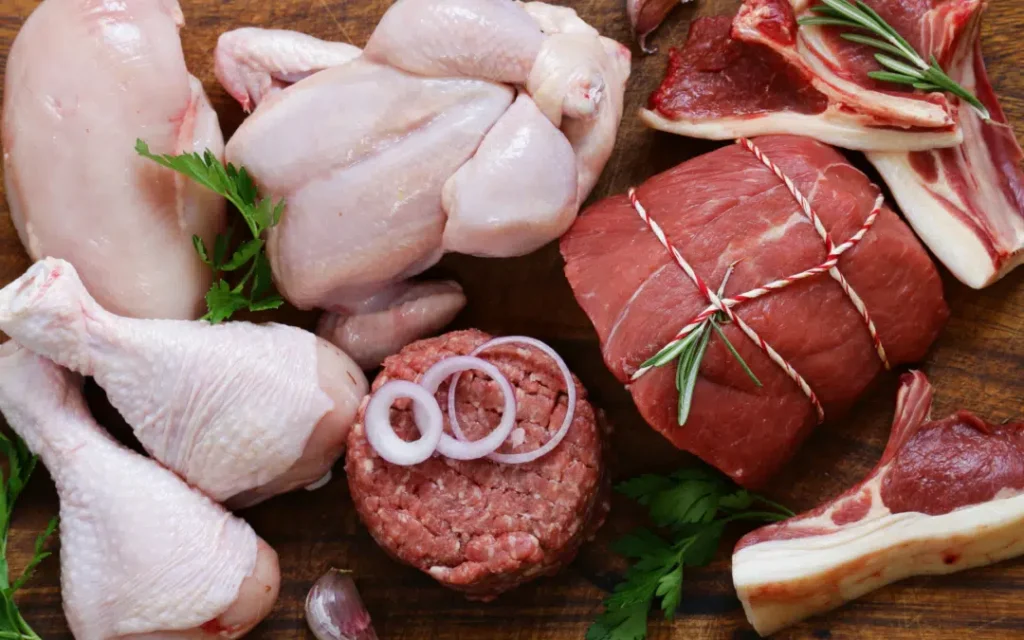
2. Fish and Seafood
Fish and seafood are not only rich in protein but also provide healthy fats, particularly omega-3 fatty acids.
Some great options include:
✔ Salmon
✔Tuna
✔ Tilapia
✔ Shrimp
A 6-ounce (170g) serving of salmon contains approximately 34 grams of protein and is also rich in heart-healthy omega-3s.

3. Eggs
Eggs are a versatile and affordable source of high-quality protein. They’re also rich in essential nutrients and healthy fats. One large egg contains about 6 grams of protein, making them an excellent addition to any meal.
Consider incorporating:
✔ Whole eggs
✔ Egg whites
✔ Hard-boiled eggs as a convenient snack

4. Dairy Products
Dairy products are excellent sources of protein and also provide calcium for bone health.
Some protein-rich dairy options include:
✔ Greek yogurt (higher in protein than regular yogurt)
✔ Cottage cheese
✔ Whole milk
✔ Full-fat yogurt
For instance, a cup (245g) of Greek yogurt can contain up to 23 grams of protein, making it an excellent choice for boosting protein intake.
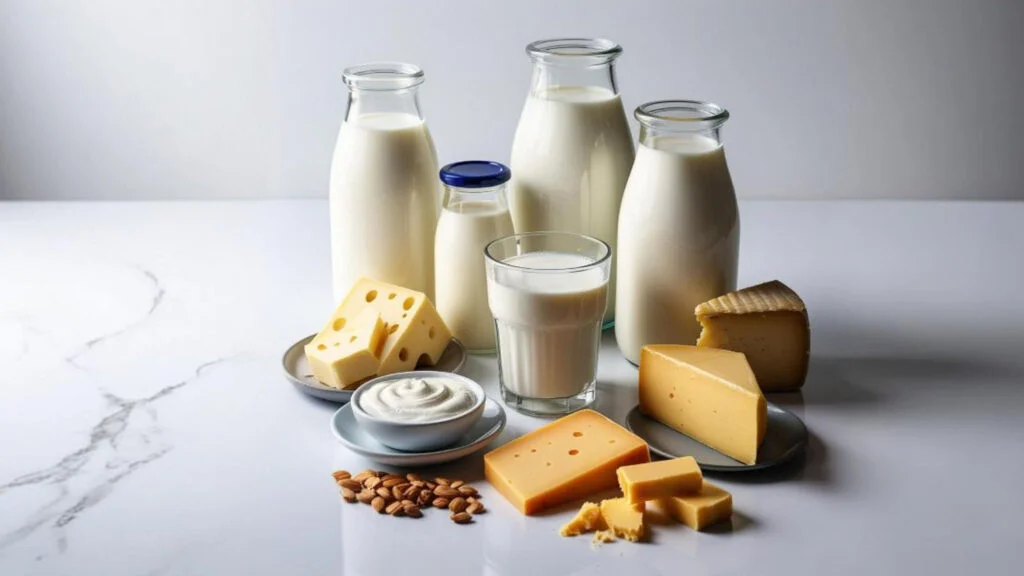
5. Plant-Based Protein Sources
For those following a vegan diet or looking to incorporate more plant-based foods.
There are numerous high-protein options:
✔ Legumes (lentils, beans, chickpeas)
✔ Quinoa
✔ Tofu and tempeh
✔ Nuts and seeds
A cup (198g) of cooked lentils provides about 18 grams of protein, along with fiber and other essential nutrients.

6. Protein Supplements
While whole foods should be the primary source of nutrients, protein supplements can be a convenient way to increase protein intake.
Options include:
✔ Whey protein powder
✔ Casein protein powder
✔Plant-based protein powders (pea, rice, hemp)
✔Protein bars
A typical scoop of whey protein powder contains about 25 grams of protein, making it an easy addition to smoothies or shakes.
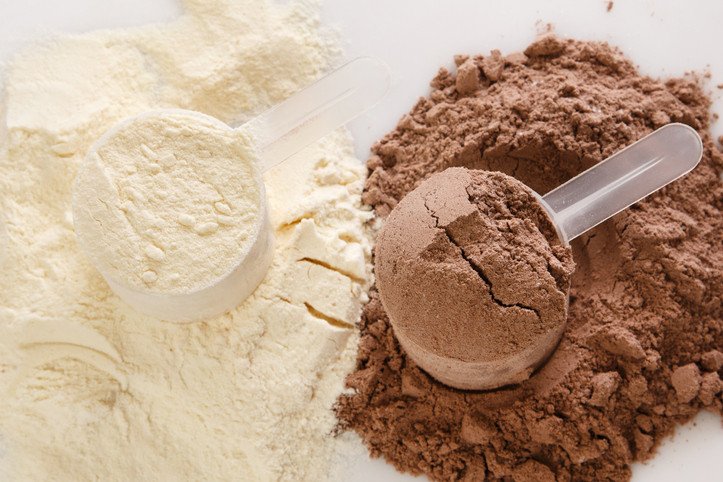
Combining Protein with Calorie-Dense Foods
To gain weight effectively, it’s important to combine protein-rich foods with calorie-dense options. This approach ensures you’re getting enough protein for muscle growth while also increasing your overall calorie intake.
Some calorie-dense foods to consider include:
1. Healthy fats: Olive oilAvocadosNuts and nut butters (e.g., peanut butter, almond butter)Seeds (chia, flax, pumpkin)
2. Olive oil
3. Avocados
4. Nuts and nut butters (e.g., peanut butter, almond butter)
5. Seeds (chia, flax, pumpkin)
6. Complex carbohydrates:Whole grains (brown rice, quinoa, oats)Sweet potatoesWhole grain bread and pasta
7. Whole grains (brown rice, quinoa, oats)
8. Sweet potatoes
9. Whole grain bread and pasta
10. Calorie-rich fruits:BananasDried fruits (raisins, dates, figs)Mangoes
11. Bananas
12. Dried fruits (raisins, dates, figs)
13. Mangoes

Sample Meal Plan for Weight Gain
Here’s a sample meal plan that incorporates protein-rich foods and calorie-dense options to support healthy weight gain:
1. Breakfast:3 whole eggs scrambled with spinach and cheese2 slices of whole grain bread with avocado spread1 banana1 cup of whole milk
2. 3 ( theree ) whole eggs scrambled with spinach and cheese
3. 2 ( two ) slices of whole grain bread with avocado spread
4. 1 ( one ) banana
6. Mid-morning snack:Greek yogurt with mixed nuts and honey1 apple with peanut butter
7. Greek yogurt with mixed nuts and honey
8. 1 ( one ) apple with peanut butter
9. Lunch:Grilled chicken breast (6 oz)Brown rice (1 cup cooked)Roasted
vegetables with olive oilTrail mix (1/4 cup)
10. Grilled chicken breast (6 oz)
11. Brown rice (1 cup cooked)
12. Roasted vegetables with olive oil
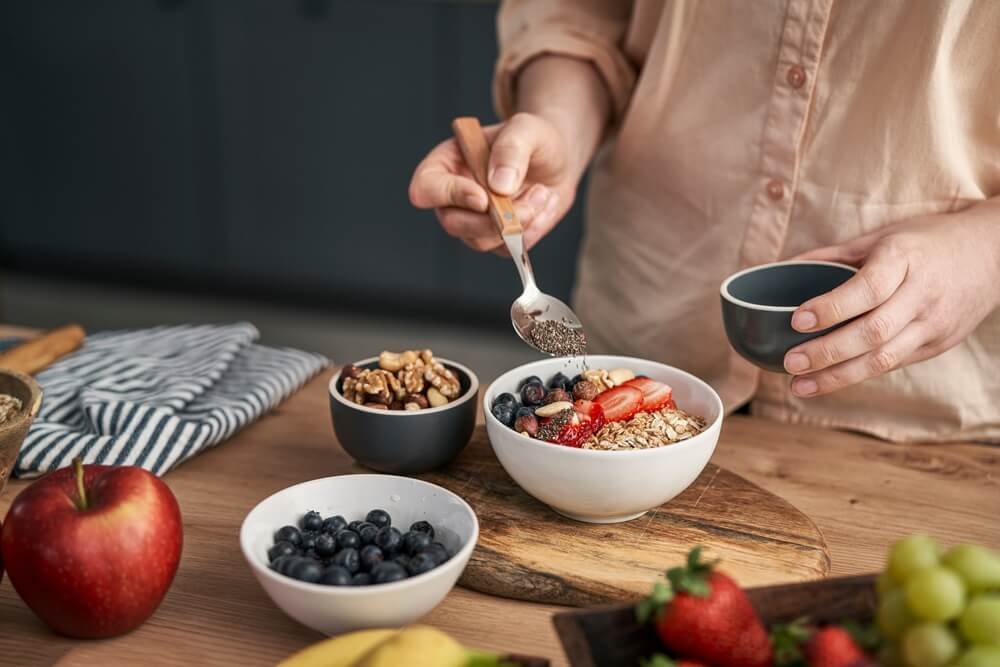
13. Trail mix (1/4 cup)
14. Afternoon snack:Protein shake made with whey protein, whole milk, and a banana1 hard-boiled egg
15. Protein shake made with whey protein, whole milk, and a banana
16. 1 hard-boiled egg
17. Dinner:Salmon fillet (6 oz)Sweet potato (medium)Steamed broccoli with olive oil Quinoa salad with mixed vegetables
18. Salmon fillet (6 oz)
19. Sweet potato (medium)
20. Steamed broccoli with olive oil
21. Quinoa salad with mixed vegetables
22. Before bed snack:Cottage cheese with berries and a drizzle of honeyHandful of almonds
23. Cottage cheese with berries and a drizzle of honey
24. Handful of almonds
This meal plan provides a good balance of protein-rich foods, complex carbohydrates, and healthy fats to support weight gain and muscle growth.

Tips for Healthy Weight Gain
1. Eat frequent meals: Aim for 5-6 smaller meals throughout the day instead of 3 large ones.
2. Incorporate calorie-dense foods: Add healthy fats like olive oil, avocado, or nuts to your meals for extra calories.
3. Use protein supplements wisely: Protein shakes can be a convenient way to increase protein intake between meals.
4. Focus on whole foods: While gaining weight, prioritize nutrient-dense whole foods over processed options.
5. Stay hydrated: Drink plenty of water to support overall health and muscle function.
6. Combine diet with strength training: Resistance exercises help stimulate muscle growth and ensure weight gain is primarily muscle mass rather than fat.
7. Monitor progress: Keep track of your weight, body measurements, and how you feel to ensure you’re gaining weight in a healthy way.
8. Be patient: Healthy weight gain takes time. Aim for a gradual increase of 0.5-1 pound per week.
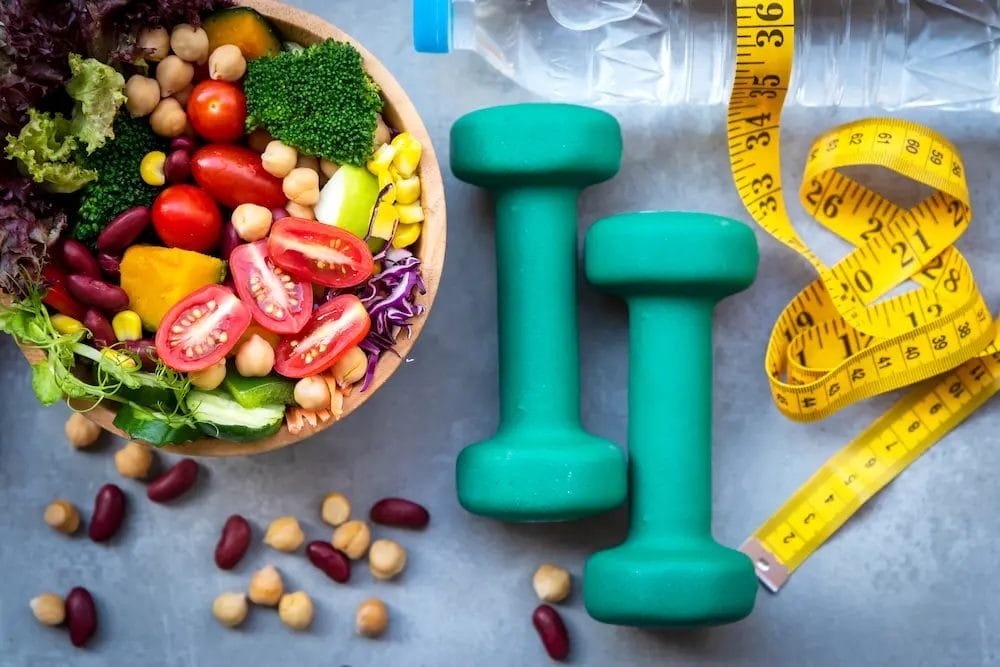
Potential Health Considerations
While gaining weight can be beneficial for some, it’s important to do so in a healthy manner.
Rapid weight gain or consuming excessive amounts of certain foods may lead to health problems such as:
✔ Increased risk of heart disease
✔ Elevated blood pressure
✔ Insulin resistance
✔ Digestive issues
It’s crucial to focus on nutrient-dense foods and maintain a balanced diet. If you have any existing health conditions, such as kidney disease or diabetes, consult with a healthcare professional before significantly increasing your protein intake or making major changes to your diet.

Comparison of Plant-Based and Animal Proteins
This analysis provides a detailed comparison of plant-based and animal proteins, considering their nutritional value, health impacts, environmental factors, and practical considerations. By examining these aspects, we can gain a holistic understanding of the benefits and drawbacks of each protein source.
Nutritional Value
Amino Acid Profiles
Animal proteins are generally considered complete proteins, containing all nine essential amino acids in the proportions needed by the human body. This makes them highly valuable for growth, repair, and maintenance of tissues. In contrast, most plant-based proteins, with exceptions like quinoa and soy, are considered incomplete proteins, lacking one or more essential amino acids. However, by combining different plant-based protein sources, such as rice and beans, one can obtain a complete amino acid profile.
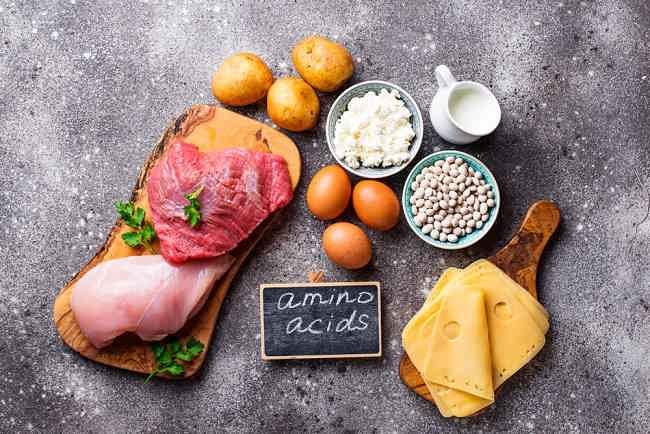
Bioavailability and Protein Quality
Animal proteins typically have higher bioavailability compared to plant proteins, meaning the body can more easily digest and absorb the amino acids. This is partly due to the presence of fewer anti-nutritional factors that can inhibit protein absorption. Animal proteins also score highly on measures of protein quality, such as the Protein Digestibility Corrected Amino Acid Score (PDCAAS) and the Digestible Indispensable Amino Acid Score (DIAAS).
Plant proteins often have lower bioavailability due to the presence of fiber and compounds like phytates and tannins, which can interfere with protein digestion and absorption. However, processing methods such as fermentation, soaking, and cooking can improve the bioavailability of plant proteins. While individual plant proteins may score lower on protein quality scales, a varied plant-based diet can still meet protein quality needs.
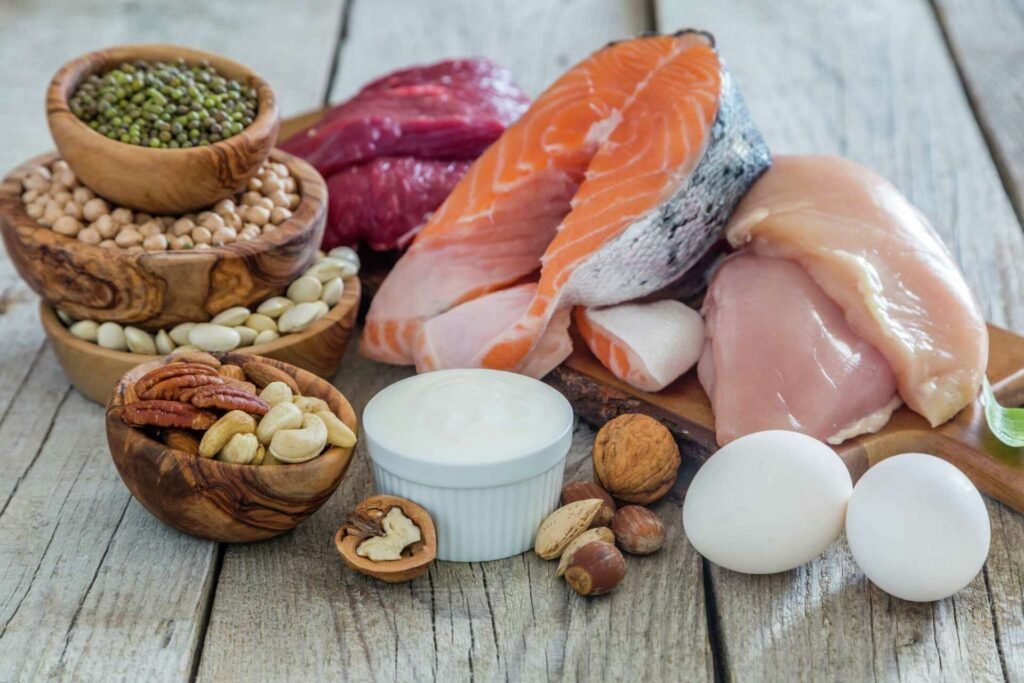
Essential Nutrients
Animal-based foods are excellent sources of essential nutrients such as vitamin B12, heme iron, zinc, and omega-3 fatty acids. These nutrients are crucial for muscle function, red blood cell production, and neurological health. Plant-based proteins, while rich in certain nutrients, may lack others, such as vitamin B12, iron, and omega-3 fatty acids, which are more readily available in animal products.

Conclusion
Gaining weight in a healthy way requires a combination of increased calorie intake, adequate protein consumption, and a focus on nutrient-dense foods. By incorporating a variety of protein-rich foods such as lean meats, fish, eggs, dairy products, and plant-based options, along with calorie-dense whole foods, you can support muscle growth and healthy weight gain.
Remember that everyone’s nutritional needs are different, and what works for one person may not work for another. It’s always best to consult with a registered dietitian or healthcare provider to create a personalized meal plan that aligns with your specific weight gain goals and overall health objectives.
By following these guidelines and focusing on a balanced, protein-rich diet, you’ll be well on your way to achieving your weight gain goals in a healthy and sustainable manner. Stay committed to your journey, be patient with the process, and remember that consistency is key in reaching your desired outcomes.
